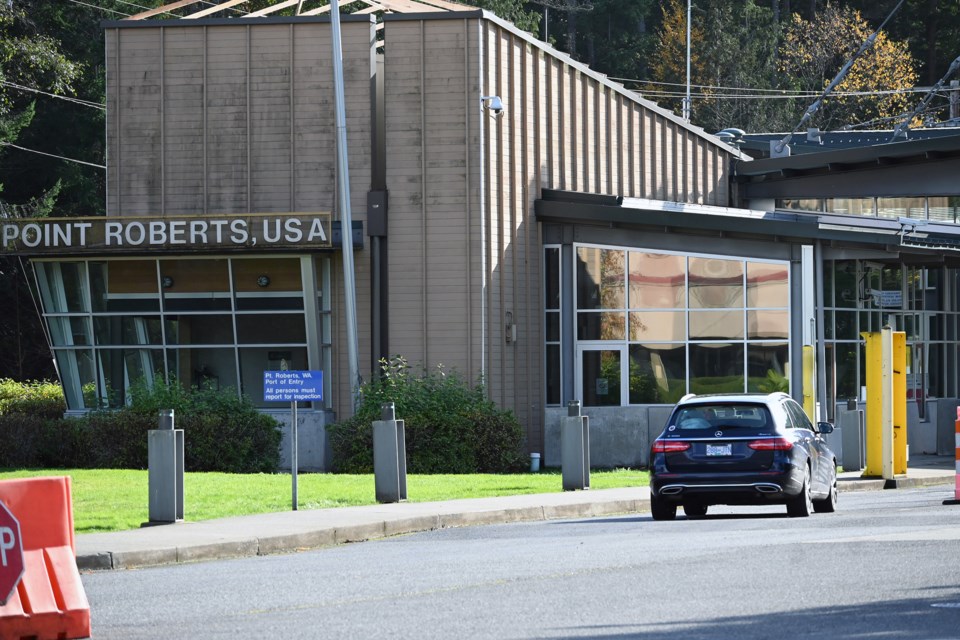It’s been four months and counting since all COVID-related Canadian/US border crossing measures were dropped for vaccinated travellers, yet Metro Vancouver residents are not returning in groves to pick-up parcels or get cheap gas in Point Roberts.
There was some hope Black Friday and Christmas online shopping would bring border traffic at least close to pre-pandemic levels but it didn’t come close.
According to the latest numbers released by the U.S. Bureau of Transportation, November saw 60,692 people come through the Point Roberts crossing, nearly 35,000 less than in 2019. December was even worse with 60,116 visits, compared to 107,499 three years earlier. The Canadian dollar was also hovering around 75 cents in 2019.
The rather alarming difference was not a huge surprise to Point Roberts Chamber of Commerce president Brian Calder who only needed to make his regular trip along Tyee Drive to know there was no sign of a holiday rush.
Since the start of the pandemic in the spring of 2020, Calder has been a loud and steady voice for his business community, reaching out to all levels of government on both sides of the border in search of some kind of economic advantage or financial assistance.
“Typically, pre-COVID, we would see the Christmas parcel post (business) increase December traffic up by about 25 percent,” said Calder. “We are still suffering, yet when you go over to what we call ‘the other side,’ which is through the Peace Arch border into Bellingham, the general feel at Costco, Target or whatever is it’s really, really busy again. Here, you can shoot a cannon down the street and not hit anybody.”
There may be some hope with warmer months on the horizon, especially with reports gasoline prices could reach a record high in Metro Vancouver this summer, however, Calder is fearing the lower border crossings might just be the new norm. For year-round residents it could be looked upon as welcome news, especially the number of new home owners that have moved into the area over the past couple of years.
According to Calder, most are coming to live there are fully or semi-retired. He has new neighbours around his home from Texas, Montana and California.
“The fear dating back to the summer of 2020 was the longer the border measures stayed in place the more it would break people’s patterns given that 75 percent of the homes were owned by Canadians at the time and 90 percent of our economy was Canadian driven,” said Calder who has dual citizenship. “The fallback or default for many families including mine, was coming to Point Roberts for the summer. Well, the younger generations have had the opportunity to look at other places like over on Vancouver Island or up country where they could still take their boats and not worry about border hassles.
“My concern is, for a lack of a better term, we don’t have a broad economy here. We have 60 gas pump hoses, six or seven parcel depots and a (US) post office as well for 1,000 people. Those are not a long range, sustainable broadening of an economic base for any town and once they have been hammered we don’t have any infrastructure to support it.”

